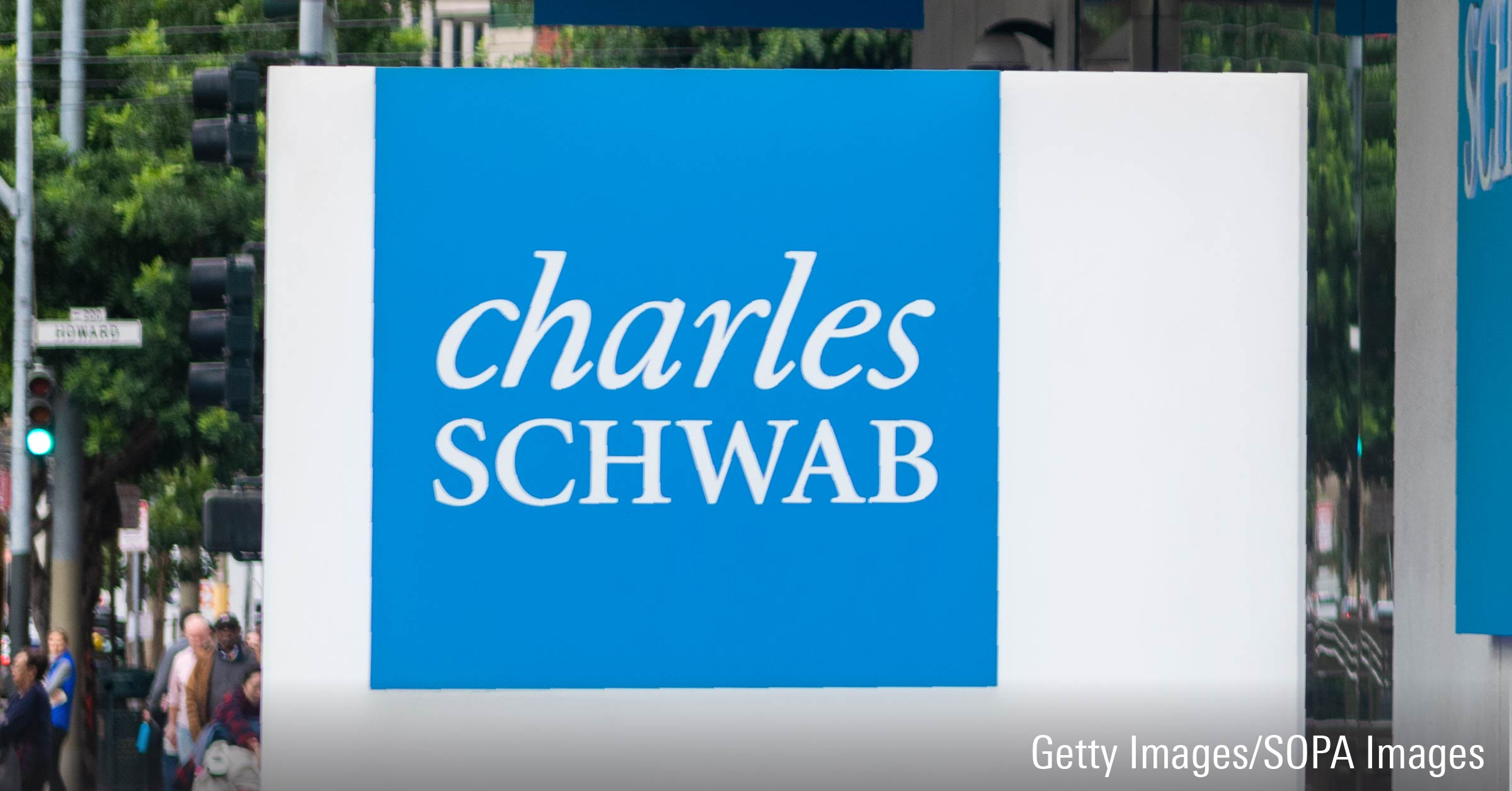Going Into Earnings, Is Charles Schwab Stock a Buy?
A key question for Schwab’s earnings: How fast are clients moving money out of its low-yielding sweep accounts?

Charles Schwab SCHW is scheduled to release its second-quarter earnings report on July 18 before the market open. Here is Morningstar’s take on what to watch for in Schwab’s earnings and stock.
Charles Schwab Stock at a Glance
- Fair Value Estimate: $70
- Morningstar Rating: 4 stars
- Morningstar Economic Moat Rating: Wide
- Morningstar Uncertainty Rating: High
What to Watch for in Schwab’s Q2 Earnings
We’ll be looking out for signs and commentary on the degree to which clients are moving cash from low-yielding sweep bank deposits into forms of cash that pay higher interest, such as money market funds and certificates of deposit—otherwise known as cash sorting. Cash sorting puts pressure on both Schwab’s liquidity and revenue.
We are also curious to see any commentary about the effect that rising interest rates have on the company, such as how much it would increase earnings, or if it will increase unrealized losses on the company’s bond portfolio.
In terms of valuation, the stock has been rallying recently. Gains can likely be attributed to the market more heavily weighing the probability of the Federal Reserve raising interest rates a little more, as well as the potential for a soft landing.
Fair Value Estimate for Charles Schwab Stock
With its 4-star rating, we believe Schwab stock is undervalued compared with our fair value estimate.
The Federal Reserve has released the results of its annual stress tests for the banks. Similar to the 2022 stress test, Schwab did exceptionally well; it was one of the four banks whose minimum common equity Tier 1 capital ratio increased during the stress period, amid an increase to 22.8% from 21.9% for the firm from its fourth-quarter ratio of 2022. Schwab often references an internal target for its Tier 1 leverage ratio of 6.5%-6.75%, and its projected minimum in the stress test is 7.4%. We are maintaining our $70 per share fair value estimate.
We value Schwab at $127 per share in our upside scenario and $44 per share in our downside scenario, which corresponds to a 2023 price/earnings ratio of 27 times in the upside case and 15.5 times in the downside case. The main drivers of the difference in valuation between scenarios are the normalized levels of interest rates, asset levels, and operating margins.
Read more about Schwab’s fair value estimate.
Economic Moat Rating
Our Morningstar Economic Moat Rating for Schwab is wide.
Given its massive scale and industry-leading cost efficiency, we believe the company can maintain severe competitive pressures, such as trading revenue dropping to $0, and still earn above its cost of capital. After the company’s commission pricing cut in 2019, we still forecast returns on capital in the low- to mid-teens, well above the company’s cost of capital, which we estimate in the high single digits. In the long run, we believe returns on invested capital could even exceed 20%. We also estimate that over 20% of client assets are in either a Schwab proprietary or a controlled product, which allows the company to extract more profits on client assets than other brokerages, whose clients primarily use third-party products.
Read more about Schwab’s moat rating.
Risk and Uncertainty
Given the competitive dynamics in the investment services industry, loss of deposits, the future path of monetary policy, and the effects of the bear market, we assign Schwab a Morningstar Uncertainty Rating of High.
Major risks to Schwab include the future of interest rates, decreases in deposits, and fee pressures. Interest rates are the key driver of the company’s earnings over the next several years. Due to the staggered reinvestment of the company’s portfolio, interest rates have to remain at a high level for its investment portfolio to fully reprice. In a recession with accommodative monetary policy, portions of the company’s investment portfolio could be stuck at a lower rate. Even if the recession is short-lived, long-term interest rates have been in a generally declining trend for years.
Low long-term interest rates will affect Schwab’s reinvestment opportunities for much of its banking portfolio, while short-term interest rates such as the federal-funds rate will affect the company’s floating-rate securities.
Read more about Schwab’s risk and uncertainty.
SCHW Bulls Say
- Schwab is solidifying its position as a leader in investment services and may be able to expand into other financial services.
- Merging with TD Ameritrade will come with material revenue and expense synergies that will be realized over the next couple of years.
- Schwab’s scalable and vertically integrated business model should enable it to convert an increasing percentage of revenue into earnings and be in the better parts of the value chain as the investment services industry evolves.
SCHW Bears Say
- A loss of deposits and higher funding costs are potential near-term negatives for the firm.
- While Schwab has the resources to adapt, financial technology innovation has increased in recent years and could disrupt parts of the investment services industry. The $0-commission business models and robo-advisors are recent trends that challenged the status quo.
- A Europe- or Japan-like scenario of near 0% interest rates for an extended period would significantly reduce earnings and likely necessitate a change in Schwab’s business model. The Fed may have to lower interest rates if a recession occurs.
This article was compiled by Lauren Solberg.
Get access to full Morningstar stock analyst reports, along with data and tools to manage your portfolio through Morningstar Investor. Learn more and start a seven-day free trial today.
The author or authors do not own shares in any securities mentioned in this article. Find out about Morningstar’s editorial policies.

/s3.amazonaws.com/arc-authors/morningstar/75bbf764-3b6f-4f5a-8675-8f9488c74c04.jpg)
/cloudfront-us-east-1.images.arcpublishing.com/morningstar/6ZMXY4RCRNEADPDWYQVTTWALWM.jpg)
/d10o6nnig0wrdw.cloudfront.net/05-20-2024/t_dc0763464c0a4191b876af1624b96f43_name_file_960x540_1600_v4_.jpg)
/cloudfront-us-east-1.images.arcpublishing.com/morningstar/IPKX4IWSDBD3VJC2Y34W6STFL4.jpg)
:quality(80)/s3.amazonaws.com/arc-authors/morningstar/75bbf764-3b6f-4f5a-8675-8f9488c74c04.jpg)